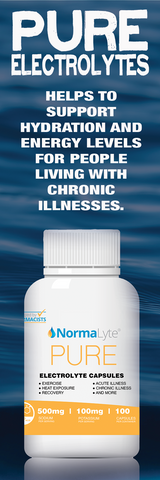Navigating Fatigue with Dysautonomia


Living with dysautonomia presents a unique set of challenges, and managing fatigue is often at the forefront. Fatigue can be debilitating, affecting every aspect of life from work to relationships. However, with the right strategies and tools, it's possible to navigate this aspect of dysautonomia more effectively.
Managing fatigue with dysautonomia requires a multifaceted approach, encompassing lifestyle adjustments, technological tools, and targeted interventions.
Understanding Dysautonomia and Fatigue
Dysautonomia refers to a dysfunction of the autonomic nervous system, which regulates essential bodily functions like heart rate, blood pressure, digestion, and more. One common symptom of dysautonomia is fatigue, which can range from mild to severe and fluctuate throughout the day.
Avoid Excessive Rest
While rest is essential, excessive resting can exacerbate fatigue and contribute to a cycle of inactivity. It's crucial to find a balance between rest and activity. Pacing oneself, often called "Pacing and Racing" is listening to your body and recognizing when to take breaks without overdoing it. Engaging in light physical activity or gentle stretches can help maintain mobility and prevent muscles from becoming stiff.
Pacing and Racing
Pacing oneself is a fundamental principle in managing dysautonomia-related fatigue. This involves breaking tasks into manageable chunks and interspersing periods of activity with rest. By pacing activities throughout the day, individuals can conserve energy and prevent overwhelming fatigue. Planning ahead and prioritizing tasks can also help prevent overexertion and reduce stress.
Leveraging Technology: Apps like Guava
In today's digital age, technology can be a valuable ally in managing dysautonomia-related fatigue. Apps like Guava offer free features for tracking symptoms, energy levels, and activity. By logging daily activities and symptoms, individuals with dysautonomia can gain insights into patterns and triggers, empowering them to make informed decisions about their health.
Vitamin Supplementation
Certain vitamins and supplements may help alleviate fatigue associated with dysautonomia. Vitamin B12, in particular, plays a vital role in energy production and nerve function. In fact, this study suggests that many people with dysautonomia may want to consider talking to their doctor about supplementation.
It's essential to consult with a healthcare professional before starting any new supplements, as individual needs vary. A comprehensive assessment can determine if supplementation is necessary and identify any potential interactions with medications.Replenishing Electrolytes
Electrolyte imbalances are common in dysautonomia and can contribute to fatigue, among other symptoms. NormaLyte is a medical grade electrolyte supplement designed to replenish electrolytes lost through sweating, vomiting, diarrhea, or other factors. Incorporating NormaLyte into one's daily routine can help maintain hydration and electrolyte balance, potentially reducing fatigue and enhancing overall well-being.
NormaLyte offers free samples of both their capsules and the oral rehydration salt sticks. Grab them today and get back your normal!








Leave a comment